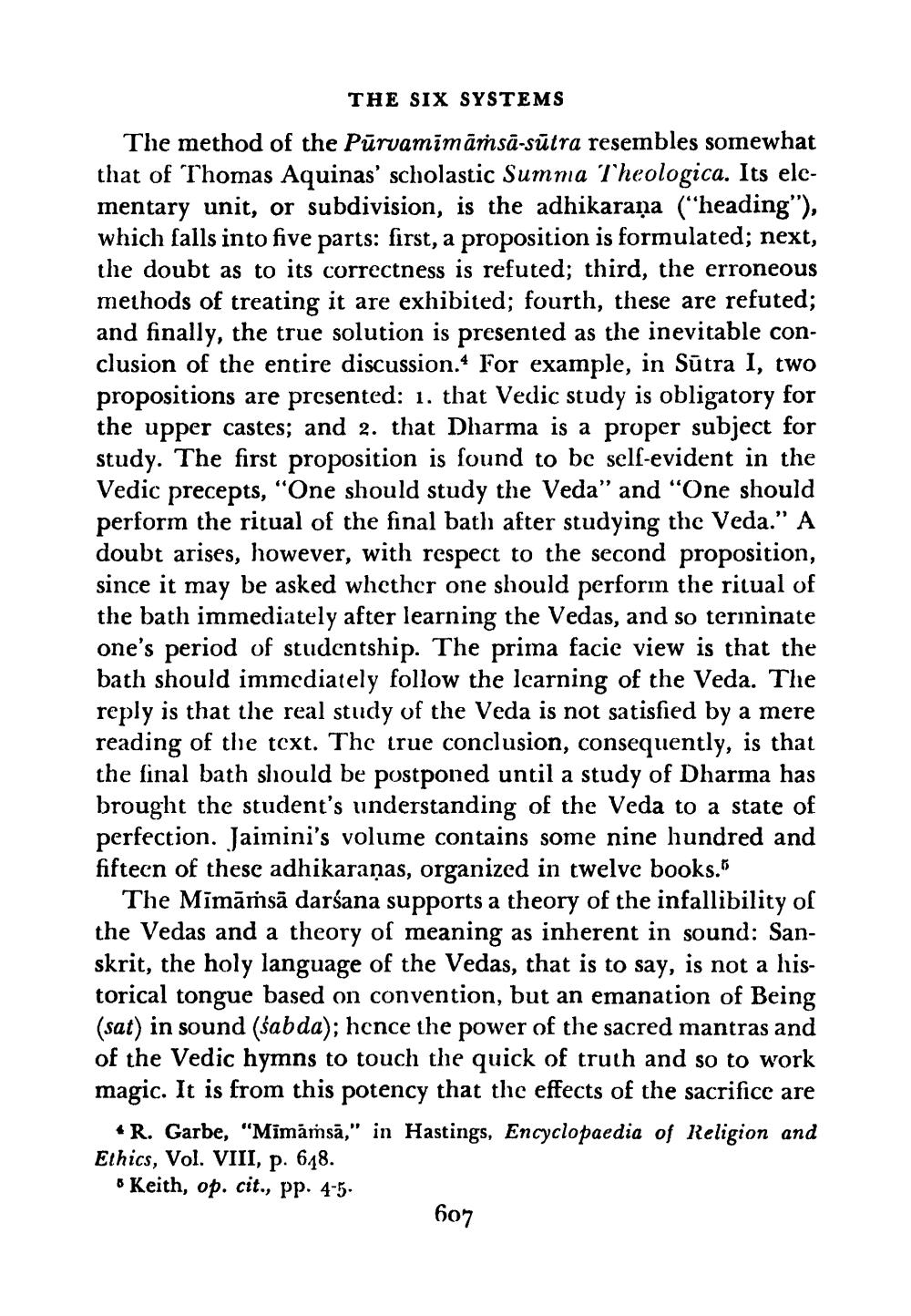________________
THE SIX SYSTEMS
The method of the Pūrvamīmāṁsā-sūtra resembles somewhat that of Thomas Aquinas' scholastic Summa Theologica. Its elcmentary unit, or subdivision, is the adhikaraņa ("heading"), which falls into five parts: first, a proposition is formulated; next, the doubt as to its correctness is refuted; third, the erroneous methods of treating it are exhibited; fourth, these are refuted; and finally, the true solution is presented as the inevitable conclusion of the entire discussion. For example, in Sūtra I, two propositions are presented: 1. that Vedic study is obligatory for the upper castes; and 2. that Dharma is a proper subject for study. The first proposition is found to be self-evident in the Vedic precepts, "One should study the Veda" and "One should perform the ritual of the final bath after studying the Veda." A doubt arises, however, with respect to the second proposition, since it may be asked whether one should perform the ritual of the bath immediately after learning the Vedas, and so terminate one's period of studentship. The prima facie view is that the bath should immediately follow the learning of the Veda. The reply is that the real study of the Veda is not satisfied by a mere reading of the text. The true conclusion, consequently, is that the final bath should be postponed until a study of Dharma has brought the student's understanding of the Veda to a state of perfection. Jaimini's volume contains some nine hundred and fifteen of these adhikaraņas, organized in twelve books."
The Mīmāmsā darśana supports a theory of the infallibility of the Vedas and a theory of meaning as inherent in sound: Sanskrit, the holy language of the Vedas, that is to say, is not a historical tongue based on convention, but an emanation of Being (sat) in sound (sabda); hence the power of the sacred mantras and of the Vedic hymns to touch the quick of truth and so to work magic. It is from this potency that the effects of the sacrifice are
R. Garbe, "Mimämsä," in Hastings, Encyclopaedia of Religion and Ethics, Vol. VIII, p. 648.
Keith, op. cit., pp. 4-5.
607




